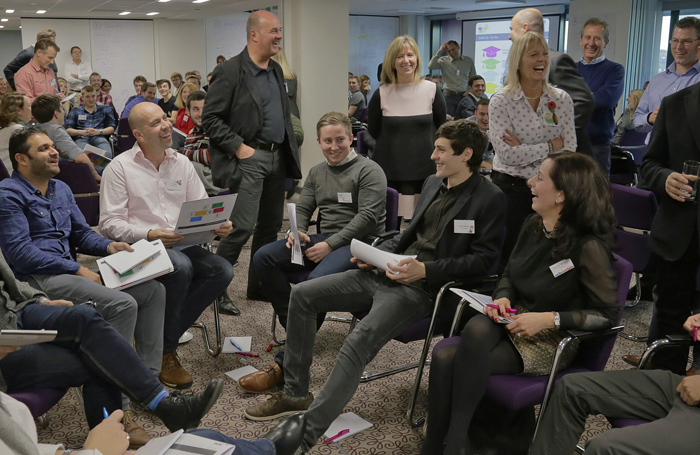A new model of leadership is needed to meet recent shifts in technology and workplace culture. How many newly founded practices do you know in the last decade that have taken their name from a single figurehead? Few if any. Hierarchical, top-down management is fast becoming a thing of the past.
Flatter organisations require a positive culture of collaboration, commitment and interpersonal awareness. Coach and bestselling author Steve Radcliffe, who is providing the keynote and thematic framework for the first Future Leaders event on 22 March 2018 at the RIBA, is the pioneer of a ‘no nonsense approach’ to leadership that has shaken up management thinking by emphasising the need for organisations to have leaders at all levels.
His book 'Leadership: Plain and Simple' provides the straightforward tripartite principles of Future, Engage and Deliver (FED). With its focus on strategy and vision, communication and delivery, FED is well suited to architectural practice, team working and project execution. It also keys into the passions of the profession.
For Steve, leadership means: ‘being at your best, what you care about and doing something about it. You need to be 'up to something'. That is, you need to have an ambition, dream of a goal for your team, organisation, colleagues or yourself and its got to matter to you.’
Awareness of both the strengths and limits of your own personality and those around you is key to success. A new inclusion in this year’s Future Leaders programme is an interactive workshop session on finding your own leadership style with architect, client advisor, coach and expert careers columnist for 'The Architects’ Journal', Matthew Turner.
For Turner: ‘Personality is a major factor to the workplace – understanding not just how your own personality affects the way you act and the decisions you make, but how the personalities of the people you interact with inform their behaviour and your relationship to them.
'One of the most powerful keys to developing effective leadership ability is self-awareness. First and foremost, know who you are. How do you prefer to think, act, socialise, process information, etc? Architects who can reflect on who they naturally are in a better position to project more confidence, competence and vision, and more readily engender respect and build trust with those that they work with.’

Empathy and emotional intelligence are key dimensions of contemporary leadership for Karen Mosley, Managing Director at HLM Architects, who is a member of the RIBA Future Leaders steering group. She has ensured that people, culture and wellbeing are a central focus for the HLM Academy, an internal professional excellence programme, of which she has overseen the development.
At HLM, she wants leadership to be accessible to all, across functions and levels: ‘It is about passion – being true to yourself and determining your motivations. There is encouragement to develop as a leader in your own area in terms of expertise, or as a leader of people or of quality, not just as a business leader, roles which are all vital for an organisation’s success.’
With thanks to: Matthew Turner, founder Buildingonarchitecture.com; and Karen Mosley, Managing Director, HLM Architects.
See: Steve Radcliffe, 'Leadership: Plain and Simple', second edition (Pearson), 2012.
Future Leaders is a three-part programme, consisting of three individual half-day events at the RIBA in London at two-month intervals. See more information on the series
Text by Helen Castle. This is a Professional Feature edited by the RIBA Practice team. Send us your feedback and ideas
RIBA Core Curriculum Topic: Business, clients and services
As part of the flexible RIBA CPD programme, RIBA Practice Professional Features count as microlearning. See further information on the updated RIBA CPD Core Curriculum and on fulfilling your CPD requirements as an RIBA Chartered Member.
Posted on 18 January 2018









